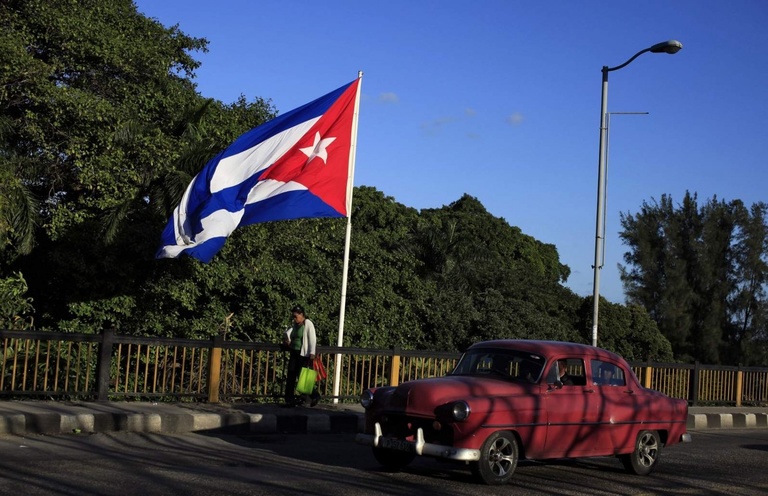
By Vanessa Miller, The Gazette
As a University of Iowa senior studying political science and psychology, Jake Murphy long has been intrigued by Cuba.
The island nation’s political and economic isolation from the United States since the 1960s has made it a sort of “forbidden fruit” for Americans, Murphy said.
“So when (President Barack) Obama announced the relationship would be renewed, and they were relaxing some embargoes, I was in shock,” he said. “It was finally happening, and I thought it was so cool.”
So cool, in fact, that Murphy wanted to go and experience the country and its culture during this transition, and before America’s influence affects substantial change.
And he’s not alone, as peers and faculty within the UI community and beyond also began planning trips to the Caribbean nation.
Now, the University of Iowa is developing a new study abroad program to Cuba focused specifically on some of the new opportunities enabled by President Obama’s efforts to re-establish diplomatic relations.
The UI program, which is expected to become available to students in the next academic year, would be business-specific — capitalizing on U.S. plans to expand sales and exports of certain goods and services to Cuba.
“It will be open to students from various academic backgrounds, but the focus is on business initiatives and helping Iowa businesses think through and strategize what kind of connections they can make with Cuban partners,” UI Study Abroad Associate Director Autumn Tallman said.
Tallman and Dimy Doresca, director of the Institute for International Business with the UI Henry B. Tippie College of Business, visited Cuba in October to map out connections and logistics for the new program, which is slated for its first run in December — over the three-week winter session in the 2016-17 academic year.
During their trip, Tallman and Doresca visited Cuban businesses, chambers of commerce and other partners and Cuban industries to set up arrangements and projects for students. Their interactions extended beyond Havana to some of the more rural parts of Cuba, in hopes of introducing students to more “culture and emersion and opportunities to talk with Cuban families.”
The UI faculty found interest among Cuban businesses in Iowa industries such as energy and agriculture. “And there may be opportunities beyond those,” Tallman said.
‘A lot of opportunity’
Iowa State University religious studies professor Rose Caraway has been conducting research in Cuba for years and said she sees partnership and collaboration opportunities specifically in the area of sustainable agriculture.
She, in fact, is heading to Cuba in March for a research project on permaculture and agroecology — the study of ecological processes that operate in agriculture production systems — that will have her visiting urban and rural regions — as she called Cuba a model for the agricultural system centered on natural patterns and ecosystems.
With climate and food crises facing the world, Caraway said Cuba has plenty of lessons to offer the United States. And Americans, specifically Iowans, have experience and expertise to impart as well.
“There is a lot of opportunity to share knowledge and learn from each other because we are facing similar problems,” she said.
ISU, as with UI, doesn’t currently have a Cuba-specific study abroad program, but Caraway said she’s planning on creating one after she wraps up her current research project.
And both ISU and UI students have traveled to Cuba in the past through other study abroad programs, such as the University Studies Abroad Consortium (USAC) — an international organization that provides study abroad opportunities to university students.
“So few American students have traveled to Cuba in recent years,” UI’s Tallman said, stressing the business-specific slant of the UI program enabled by the diplomatic shift. “It’s a unique model because students will be working on an actual project that could be an immediate benefit to students on both ends.”
UI junior Haley Henscheild, 19, also traveled to Cuba through the USAC program this winter and found the island nation rife with possibility for collaboration and partnership. But, Henscheild said, she also found the other-worldly culture of Cuba delightful and worries about too much American influence.
“They could make use of Iowa’s agriculture and what we have to offer,” she said, commenting on the lack of variety at local farmers markets and the antiquated equipment and technology they use. “But we have to make sure not to overstep our boundaries.”